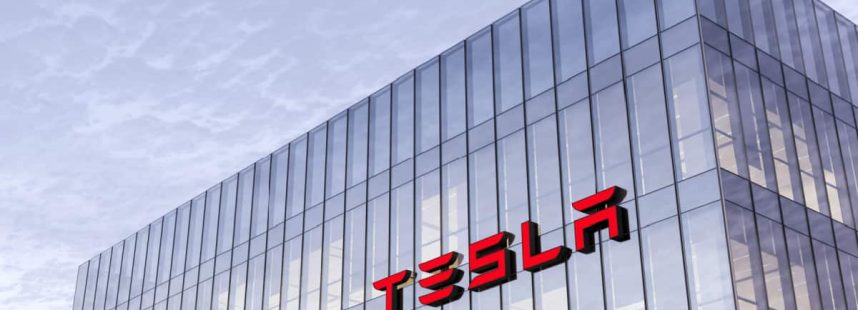|
|
Last
Modified on
May 01, 2024
Tesla’s Current Racial Discrimination Lawsuit
According to the complaint, the 15 current and former employees suing Tesla are all current and former, male and female, African American factory workers alleging some form of racially motivated discrimination. Below are a few examples of the alleged conduct.
Use of Racial Epithets
Several employees alleged that Tesla factory superiors employed the continued use of racial epithets when addressing minority employees. Several employees related instances where non-African American superiors or co-workers would address African American employees as the “n-word” or other forms of racial slang. Further, some plaintiffs alleged finding words and symbols like the “n-word,” KKK, and swastikas on bathroom and break room walls.
Altercation at Elon Musk’s Home
One of the plaintiffs in the suit described a situation at the home of Tesla founder Elon Musk. The plaintiff alleges while working on solar panels at Musk’s home, another Tesla employee accused the plaintiff of “protecting and/or favoring” other racial minorities. The plaintiff’s employment was then terminated within two hours of the altercation. According to the plaintiff, Tesla’s human resources department stated the decision to terminate the plaintiff came from a superior and refused to investigate the matter.
Biased Discipline and Termination
Several plaintiffs alleged Tesla’s management routinely disciplined and terminated minority employees for alleged misconduct, whereas non-minority employees engaging in the same misconduct were not. For example, one plaintiff alleged multiple incidents where he would be reprimanded for wearing headphones or a hat while working at Tesla’s facilities. However, non-minority employees would not be reprimanded for the same actions.
Other employees alleged Tesla superiors constantly reminded minority employees that their jobs were “on the line” for no apparent reason. As a result, many of the plaintiffs were threatened with termination, and some experienced a lack of willingness from the human resources department to prevent this behavior or investigate alleged wrongful termination claims.
Tesla’s Previous Employment Discrimination Lawsuits
The most recent lawsuit is only several other lawsuits that alleged some form of employment discrimination within Tesla’s facilities. Other suits include gender-related adverse employment actions and an investigation by the State of California regarding Tesla’s employment practices.
Owen Diaz’s Racial Discrimination Case at the Tesla Freemont Factory
Although large companies like Tesla face countless forms of employment-related lawsuits and administrative filings every year, Owen Diaz’s stands out. Mr. Diaz filed an action against the electronic vehicle manufacturer in 2017, alleging a consistent pattern of racial discrimination. Mr. Diaz, an elevator contractor, alleged approximately 30 instances where a Tesla employee used the “n-word” in front of or about Mr. Diaz.
In one of the most significant single-plaintiff employment discrimination lawsuits in U.S. history, a San Francisco jury awarded Mr. Diaz a $137 million jury verdict in 2021. However, the judge overseeing the trial reduced the damages award to $15 million, which still represents an uncommonly large damage award in a single-plaintiff employment discrimination case. Mr. Owen rejected the reduced award and vowed to retry the case for a higher award amount.
Sexual Discrimination at the Tesla Freemont Factory
In 2021, six women filed separate sexual discrimination lawsuits against Tesla for alleged gender and sexually motivated discrimination at its Freemont, CA factory. The women contend they faced daily sexual harassment, including catcalling, gawking, and derogatory gender-related language describing female employees. The women also alleged Tesla routinely failed to address allegations of sexual harassment when reported to the human resources department. The six lawsuits came on the heels of another lawsuit filed a month prior, where a female employee alleged “nightmarish conditions” of persistent sexual harassment fueled by male co-workers.
California Department of Fair Employment and Housing Lawsuit
In February of 2022, the State of California’s Department of Fair Employment &; Housing (the state’s administrative agency for addressing discrimination in employment and housing) filed suit against Tesla for numerous violations of California’s anti-discrimination and wage and hour laws. DFEH stated that African American workers were subject to racial segregation in the workplace, relegating workers to lower-level positions with few avenues for promotion or access to executive-level positions. DFEH also received hundreds of complaints from current and former employees about racial discrimination at Tesla’s facilities. Finally, Tesla allegedly failed to address numerous complaints of discrimination.
Understanding California Employment Discrimination Law
Like nearly all states, California’s Fair Employment and Housing Act (FEHA) parodies Title VII of the Civil Rights Act of 1964, which prohibits discrimination on the basis of several characteristics (including race) in employment.
Protected Groups and Categories
Under FEHA, employers with five or more employees are prohibited from discriminating against current employees and job applicants on the basis of the following characteristics:
- Race.
- National origin.
- Religion.
- Creed.
- Age for employees aged 40 and above.
- Mental and physical disability.
- Sex and gender, specifically pregnancy status, childbirth, breastfeeding, and other gender-related medical conditions.
- Sexual orientation.
- Gender identity.
- Medical conditions.
- AIDS/HIV status.
- Political affiliation.
- Genetic information.
- Marital status.
- Military and veteran status.
Prohibited Discriminatory Practices
Although employment discrimination is banned in virtually all forms of employment practices, both statutes and case law outline several areas uniquely identified as areas covered employers are strictly prohibited from engaging in discrimination, which includes:
- Advertising job postings and positions.
- Employment applications, screening candidates for employment, and applicant interviews.
- Conditions of employment, including hiring practices, transferring employees throughout departments, employee promotions and terminations, and separation of employees.
- Working conditions, including employee compensation, benefits, and physical conditions.
- Employee training and apprentice, employee organization, and union representation.
Other Laws to Consider
Not only does California provide employees with comprehensive protection from employment discrimination, as outlined above, but it also has several other laws prohibiting particular forms of discrimination. Such laws include:
- California Family Rights Act: covered employers must provide employees with 12 weeks of unpaid, protected leave for a serious health condition for themselves, family members, or bond with a new child.
- California Equal Pay Act: covered employers are prohibited from discriminating on the basis of gender or ethnicity per an employee’s previous salary.









